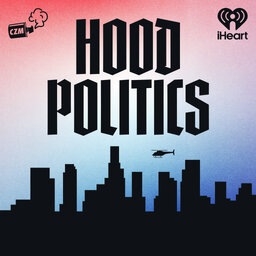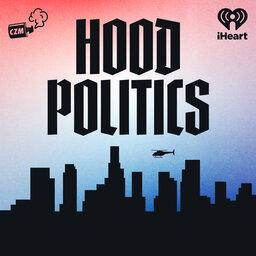Terraform: The Doc es Una Chingona
Prop talks with education activist and all-around badass Dr. Alma Zaragoza-Petty. We talk about her professional work and her book "Chingona: Owning Your Inner Badass for Healing."
In 1 playlist(s)
Hood Politics with Prop
From the makers of the Red Couch pod: The political landscape can be confusing, but it doesn't have …Social links
Follow podcast
Recent clips

Tap In: A Hit Dog Gon Holla: Druski's Megachurch Stunt
12:18

Actually, These Are Very Precedented Times: ICE Recruitment & the History of the LAPD
30:52

Tap In: JD Vance is the Kanye West of Donald Trump
09:44
 Hood Politics with Prop
Hood Politics with Prop